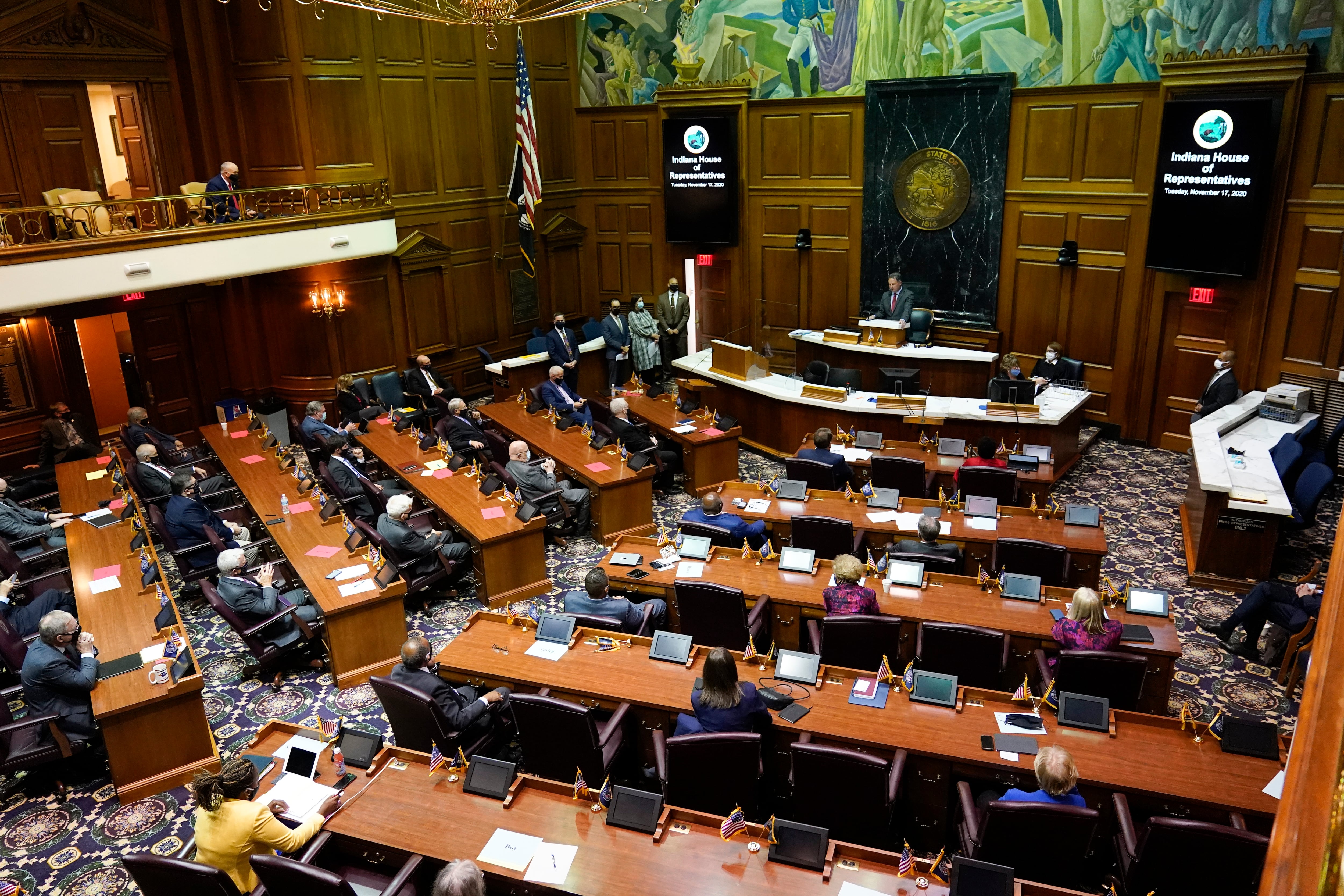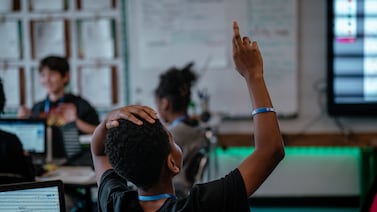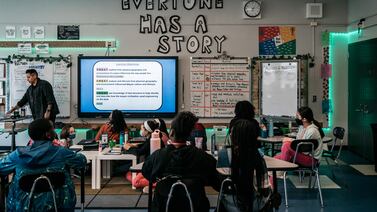Spending more on schools and making high school more relevant are top of mind for Indiana lawmakers heading into the 2023 session, legislative leaders said Monday.
Speaking at a preview event with the Indiana Chamber of Commerce, the leaders of the Democrat and Republican caucuses highlighted proposals to graduate students who are prepared for the workforce and willing to stay in Indiana, as the state grapples with declining college enrollment and the academic impact of the pandemic.
However, GOP leaders essentially stayed mum about whether they’ll take another crack at last year’s unsuccessful curriculum bill that sought to restrict what teachers could say about race and racism.
Republicans, who hold a supermajority in both chambers of the legislature, will seek more work-based learning in high school. Democrats, meanwhile, stressed the need for the state to improve its educational attainment, beginning with early learning.
The legislative session begins in early January. The ceremonial start to the session — known as Organization Day — is on Nov. 22, when representatives can begin filing bills. Here are the education issues to watch for as the session kicks off.
Rethinking what high school looks like
Speaker Todd Huston (R-Fishers) said a top priority for House Republicans is to “reinvent” high school, so that students can work and use job-based opportunities to receive credit toward graduation.
“We have to adjust to a new economy,” Huston said. The current high school structure prioritizes higher education over other postsecondary pathways, he added.
Huston said the details of the plan would be laid out later, but hinted that it could involve replacing courses like calculus with work-based learning.
Indiana is already in the midst of a major overhaul of its K-12 standards after a law passed last year asked the state Department of Education to streamline what students need to know in order to be successful. The department is supposed to seek input from industries, employers, and higher education institutions in order to create those new standards.
Increasing funding for K-12 schools
Heading into a budget year, Huston also said he expects the legislature to approve an increase in K-12 funding, “while expanding options for kids to attend the school of their choice.”
“I feel good about the amount we’re putting into education,” he said.
In 2021, lawmakers approved a $1.9 billion increase for schools, allowing many to raise pay for teachers, who had rallied en masse at the statehouse. (Indiana adopts budgets for two-year periods.)
Calls have already come from school districts this year to invest more into the funds schools receive to educate students who live in poverty — sometimes known as complexity funding.
Indiana Secretary of Education Katie Jenner also said in a recent state Board of Education meeting that increasing funding for English learner students is a priority, after the state reported double-digit drops in test scores for that group this year.
Expanding child care by reducing regulations
The Chamber of Commerce listed improving access to child care and early education in Indiana as one of its top legislative priorities.
“The lack of affordable, high-quality child care across Indiana is one of the outside factors most negatively impacting attracting and retaining workers,” a statement from the chamber said.
To do this, the chamber suggests streamlining existing state regulations not related to health and safety, as well as offering incentives for providers to improve the quality of their programs.
Huston said reconsidering licensure requirements could be a step toward creating more child care providers in the state.
Senate Minority Leader Greg Taylor (D-Indianapolis) said lawmakers have resisted other ideas that could improve access to early education, like offering a child care tax credit, or lowering the age for compulsory school attendance in Indiana from seven to five.
No ‘specifics’ on another curriculum bill
Some education watchers expect to see another version of last year’s curriculum bill involving how teachers address racial issues. But Huston said during the press conference that he hasn’t “heard specifics” about another try.
He added that his caucus “supports families’ rights to choose” the schools their children attend.
However, Huston told reporters he would support another idea from the last legislative session: A bill to make school board elections partisan. Last year’s bill on the matter, which would have required ballots to include school board candidates’ partisan affiliations, drew significant criticism and died in committee.
During the preview event, House Minority Leader Phil GiaQuinta (D-Fort Wayne) said he hoped legislators would “give social issues a rest this session,” after tackling contentious topics like abortion rights in 2022.
“It doesn’t do our state any good to be in the national news over those issues,” GiaQuinta said.
Aleksandra Appleton covers Indiana education policy and writes about K-12 schools across the state. Contact her at aappleton@chalkbeat.org.






